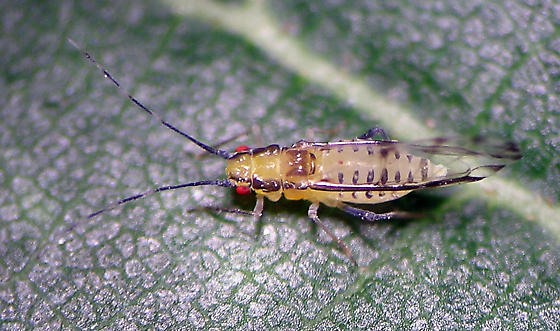Hi. We have several linden trees on our property and all seem to be dropping a lot of sap, as well as now attracting a lot of wasps. The trees are quite large, 30′ plus in height. Is there a way to eliminate aphids to help reduce the honeydew and hopefully the wasps. This is a townhouse complex and we want to ensure the residents are safe from being stung. The trees we love and do not want the solution to be removal. Some solutions I have read online such as spraying with water may not be possible due to their size and location. Hoping for some advice, Jason.
Thank you for contacting the Toronto Master Gardeners about your linden trees (Tilia cordata). From your description, it certainly sounds like your trees are infested with Linden aphid (Eucallipteris tiliae). Plants infested with these aphids (and other aphids) often show distorted growth that may be curled, puckered or otherwise stunted. Leaves have pale or yellow spots, or entire leaves can turn yellow, or brown. Below is a photo of this pest.

What you have read online about controlling these insects is correct: one of the best ways to control Linden aphid (or any aphids) is with blasts of water from your hose to knock them off the plant. Applying insecticidal soap can also be helpful. Given the size of your trees, and what sounds like a severe infestation, we suggest that you contact a certified professional arborist to assess your trees, and determine the best treatment, including application of the soap as appropriate. To find a certified professional arborist, please use the link to the Ontario branch of the International Society of Arboriculture here.
A couple of notes :
- Aphids can also spread viruses. The possibility of virus transmission during feeding can be more serious than the feeding damage done by aphids.
- Aphids overwinter by depositing eggs in leaf litter and twigs, so good garden sanitation in the fall and thorough spring cleanup is always important to help eliminate ongoing infestation.
All the best with treating your lovely linden trees!

